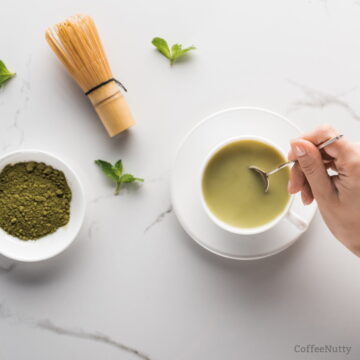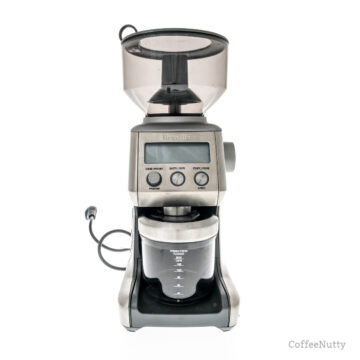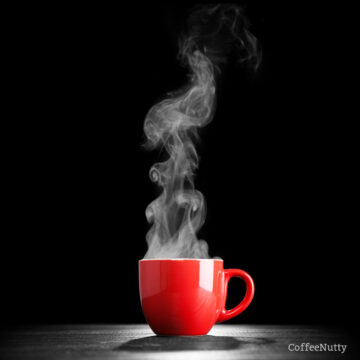Chai tea has risen in popularity in the last few decades, but its roots go back centuries when it was first consumed in India 5,000 years ago. As a daily staple in Hindu culture today, this drink is a mixture of tea, milk, and spices. With these ingredients, you may wonder how much caffeine does chai tea contain?
There is caffeine in chai tea when you make it using traditional teas. Using oolong tea in your chai blend will give it a dose of caffeine, depending on the amount of water you add to the tea leaves. The caffeine content also depends on how long you steep the tea leaves.
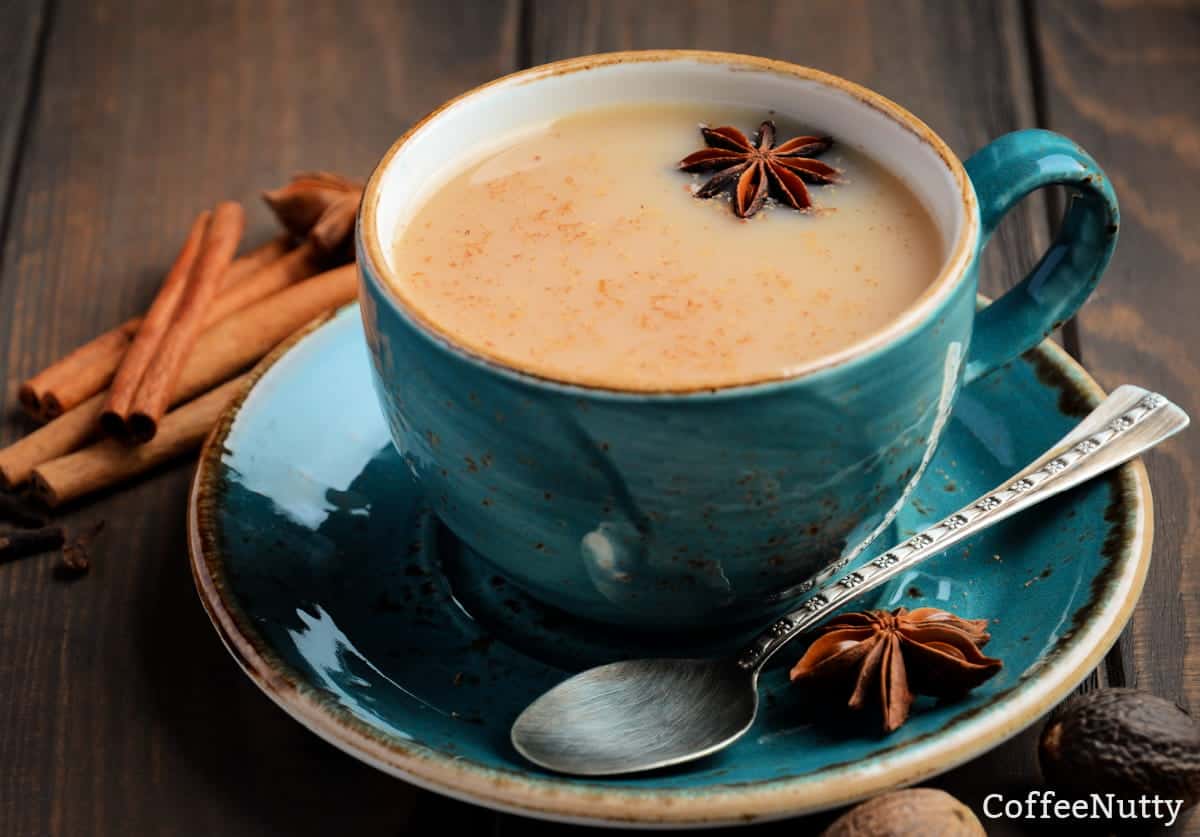
For this article, I'll be going over the of chai tea has and how adequate this amount of caffeine is. I'll also explore how much chai you can consume while being safe about your health.
How Much Caffeine Is in Chai Tea?
Caffeine is not a component specific to coffee; it can also be found in tea and other beverages with coffee or tea bases. When selecting your drink choice, you must consider how many mg of caffeine is in a drink rather than whether it contains caffeine.
Chai tea contains about 11 milligrams (0.0004 oz) of caffeine per 100 grams (0.22 lb) of tea. All traditional teas hold a similar amount of caffeine, and chai tea is often made with black tea.
However, the effects of caffeine from a black tea beverage depend on the amount of water and milk used per cup.
Most people use about 250 milligrams (0.009 oz) of tea per cup, meaning a cup of chai can contain about 20-60 milligrams (0.0007-0.002 oz) of caffeine.
However, this quantity may vary as there are many chai recipes.
Some people will prepare chai tea differently from others, and the caffeine content will change according to the following criteria:
- The steeping time of the tea leaves
- The tea base of your chai
- The type of spices used
Calculating the amount of caffeine in different chai tea blends is impossible, mainly because different combinations use varying amounts of traditional tea leaves.
However, if you're feeling health-conscious, you can dilute the caffeine content of your chai drink by adding more warm milk or water to your cup.
If you're interested in a modern twist to the traditional chai tea recipe, check out my post on what a chai latte is. You'll also get a recipe for making masala chai tea at home.
How Effective Is the Caffeine in Chai Tea?
Tea has significantly less caffeine per cup than an average cup of coffee.
You might wonder whether it's strong enough to keep you awake through the night and boost your energy levels when working on an important project or upcoming finals.
To understand how strong the caffeine in chai is, you need to know that caffeine is only one of many alerting components in this tea.
Some spices that go into the mixture have alerting effects, but tea can keep you awake because it has a component called L-theanine.
While 50 milligrams (0.002 oz) of caffeine is strong enough to keep you awake for an hour, adding L-theanine to the mixture can give you an extra boost of 30 minutes. Therefore, combining L-theanine and caffeine makes chai tea more effective in keeping you awake.
In short, the caffeine in chai can be effective, but the real hero of the story here is theanine since it gives caffeine a needed boost and is less harmful to your body.
The Difference Between Theanine, Theine, and Caffeine
Theanine, theine, and caffeine are compounds that you can find in teas that affect your wakefulness when you consume them.
However, these compounds are not the same.
Theine and theanine are different substances with unique molecules. The two terms may look similar, but they are not interchangeable.
Theine is a stimulant composed of methylxanthine and has a similar molecular structure to caffeine. On the other hand, theanine does the exact opposite of what theine does.
It is different in molecular structure (being an amino acid) and has relaxing effects on the user.
Theine and caffeine are both stimulants, but theine only exists in teas. These molecules enter your system, stimulate the right parts of your brain and body, and keep you awake.
The primary difference is their absorption rate.
Caffeine directly affects your system and will get absorbed into your blood flow much more quickly. Conversely, theine will do its job slowly by infusing the water with stimulants, producing a longer-term effect in keeping you awake.
The initial kick in coffee is why people feel like caffeine keeps them awake better, as the human body responds to it faster.
However, the effects of caffeine die down throughout the day. With theanine mixed into caffeine, you can expect more stimulating results.
Overall, theine gets the same job done without the crash you get with caffeine.
How Much Chai Tea Can You Safely Drink?
A healthy caffeine intake helps keep you stimulated throughout the day but doesn’t put stress on your system.
However, not everyone has the same recommended dosage for caffeine, as consumption depends on age, gender, and health concerns.
While the Food And Drug Administration (FDA) -recommended amounts can vary according to these factors, a rule of thumb would be to limit your chai tea intake to 3 cups per day.
Any more than this could irritate you daily and cause severe side effects.
Health Benefits of Chai Tea
Chai tea steeps black tea leaves with aromatic spices like cinnamon, ginger, cardamom, and cloves. Chai tea tastes fantastic and offers several health benefits, making it an excellent addition to your daily routine.
But as with anything related to health (i.e., heart health, blood pressure, weight loss, blood sugar, nervous system, etc.), always consult your physician before trying something new.
One of the most significant benefits of chai tea is that it aids digestion.
The combination of spices used in making chai tea helps to stimulate the digestive enzymes in your body, promoting better digestion and reducing bloating. Additionally, the antioxidants found in black tea are known to help protect against stomach ulcers and reduce inflammation in the gut.
Another benefit of drinking chai tea is that it boosts immunity.
The chai spices contain several vitamins and minerals, such as vitamin C and zinc, essential for maintaining a healthy immune system, a bonus for tea lovers.
This delicious tea is also a great way to get a nice energy boost due to the moderate amount of caffeine.
What Type of Milk Goes in Chai Tea
One of the most common types of milk used in chai tea is whole milk. This type of milk has a high-fat content, giving the chai a creamy texture and rich flavor.
However, consider using low-fat or skimmed milk for a healthier option.
Another option is using non-dairy milk such as almond or soy milk.
This can be an excellent choice for those who are lactose intolerant or vegan. Non-dairy milk has a slightly different taste than cow's milk so it may alter the final flavor of your chai tea.
Different Types of Tea
Tea is one of the most popular beverages in the world, and it comes in many different types.
Whether you're a tea enthusiast or just starting to explore the wide world of tea, understanding the different types can help you find your perfect cup. There's black tea, one of the most common types of tea.
Black tea is made from leaves that have been fully oxidized, resulting in a robust flavor and dark color. Some popular varieties include Earl Grey, Darjeeling, and Assam.
Secondly, green tea is another well-known tea with numerous health benefits.
Green teas are unoxidized and range from light to deep green. They have a subtle but refreshing taste and are known for their high antioxidant content. Some popular green teas include matcha and sencha.
Herbal Teas
Herbal tea has been a popular beverage for centuries.
It infuses various herbs, fruits, and spices in hot water. Unlike traditional teas like black or green tea, herbal teas are usually caffeine-free and have different health benefits.
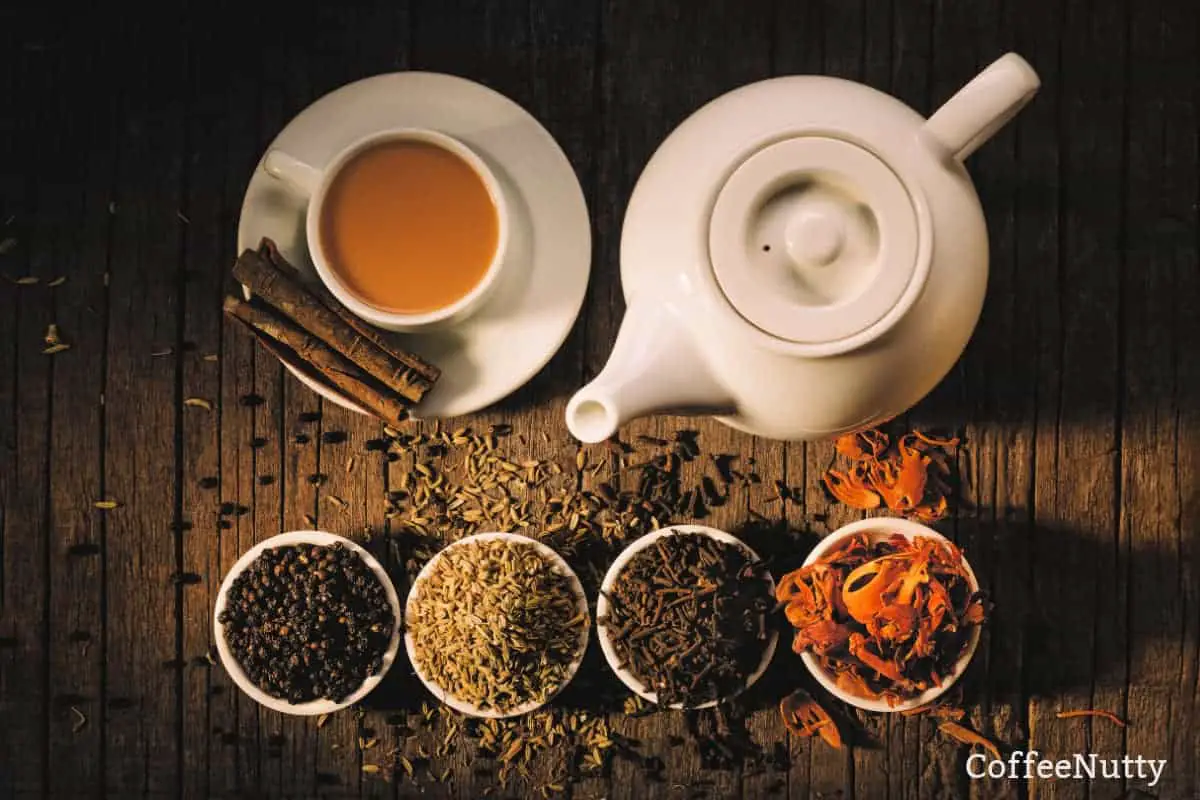
There are many types of herbal teas available in the market today. One of the most popular is chamomile tea, known for its calming effects on the body and mind.
Another well-known type is peppermint tea which can help soothe digestive problems and relieve stress.
Other common herbal teas include ginger tea, which has anti-inflammatory properties and can aid digestion; hibiscus tea, which may lower blood pressure; and echinacea tea, which can boost the immune system.
Rooibos (red bush) tea from South Africa has become increasingly popular due to its high levels of antioxidants and unique taste.
Chai Tea Vs. Green Tea - What's the Difference?
Chai and green tea are two of the most popular teas in the world.
Chai tea originated in India, with the main ingredients being a blend of black tea, a blend of spices, milk, and sweetener.
On the other hand, green tea originated in China and is made from unfermented leaves.
One of the key differences between chai tea and green tea is their taste. Chai tea has a strong, spicy flavor due to the combination of spices like cinnamon, cardamom, ginger, and cloves that are added to it.
Green tea has a more subtle taste with grassy notes from its unfermented leaves.
Another difference between these two teas is their caffeine content.
A cup of chai tea typically contains more milligrams of caffeine than green tea as it's usually made using black or Assam teas with higher caffeine levels than green teas with lower amounts.
Caffeine content may help you determine if tea is a good alternative to your morning cup of coffee.
Final Thoughts
Whether you prefer hot drinks or a cool cup of tea, chai tea is a great option for a caffeine kick.
Chai tea is a popular blend from India and can contain caffeine if made with black or oolong tea. However, the caffeine content in a serving of chai tea depends on how you prepare it.
Preparation will also affect how stimulating your chai is because of the presence of L-theanine in black tea. L-theanine is an amino acid that helps you relax and perform better, which is why tea's caffeine content irritates you less.
You can restrict your caffeine intake for a healthier lifestyle by drinking no more than 3 cups of chai tea per day.
In conclusion, chai tea is a popular beverage that contains a moderate amount of caffeine.
While it may provide some health benefits, such as increased alertness and improved cognitive function, consuming it in moderation is essential.
Additionally, chai tea and other chai drinks can be high in sugar and calories if prepared with sweeteners and whole milk.
If you're looking to reduce your caffeine intake or avoid the potential adverse side effects of caffeine, consider switching to decaf or herbal versions of chai tea.
As with any food or drink, you must listen to your body and make informed choices about what you consume. So enjoy a cup of chai tea - just be mindful of how much caffeine you're consuming!

